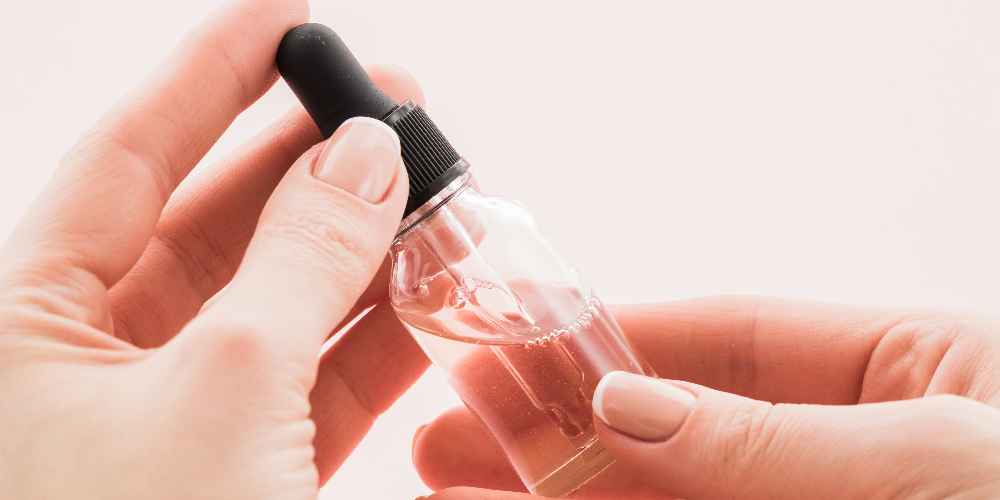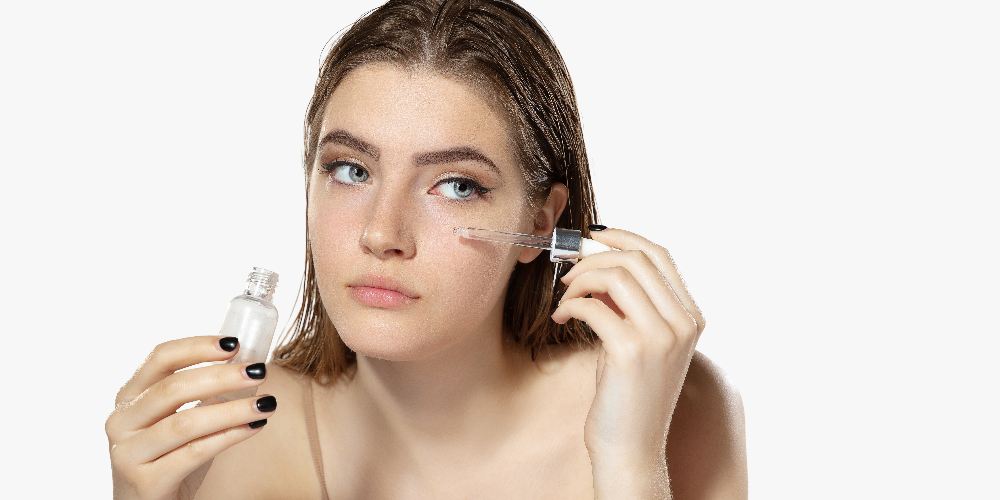Retinol is considered as one of the best skincare ingredients of all time, And there are reasons for that.
Retinol is a skincare ingredient that has been making waves in the beauty industry for years.
What makes Retinol one of the all-time best skincare ingredients is its ability to target multiple skin concerns and to provide all-round benefits to the skin.
This is an ultimate guide to retinol, where we’ve done tons of research and compiled literally everything you need to know about this skincare superstar. Now let’s start.
What is Retinol?

Retinol is a derivative of vitamin A and is a powerhouse ingredient in skincare known for its remarkable ability to provide multiple benefits to the skin.
Its effectiveness stems from its ability to accelerate cell turnover, promoting the shedding of old, damaged skin cells and revealing newer, healthier ones underneath.
Originally used as an acne treatment, retinol has evolved to become a staple in various other skincare routines, backed by decades of research and clinical studies.
How does Retinol Work? Lets Understand The Mechanism
Once applied to the skin, retinol penetrates deep into the dermis, where it interacts with skin cells and triggers a series of beneficial reactions.
Its molecular structure enables it to penetrate the skin’s surface and interact with skin cells on a cellular level. When applied topically, retinol undergoes enzymatic conversion into its active form, retinoic acid, within the skin.
This process triggers a cascade of cellular events, including increased collagen production and accelerated cell turnover, leading to smoother, firmer, and more youthful-looking skin.
Who Should Use Retinol?
Retinol is suitable for a wide range of individuals looking to address various skincare concerns. It is particularly beneficial for those concerned with signs of aging and dealing with acne and frequent breakouts.
Retinol is also extremely beneficial for people with hyperpigmentation and those suffering from skin dullness and uneven skin tone.
However, it’s important to note that people with sensitive skin should approach retinol with extra caution. Similarly, Pregnant or breastfeeding individuals are advised to avoid retinol.
The Benefits of Retinol
Increases Epidermal Thickness
Topical retinol applied to aged human skin has been shown to considerably increase epidermis thickness by increasing epidermal keratinocyte proliferation.
In addition to enhancing epidermal thickness, topical retinol has been proven to significantly boost the proliferation of endothelial cells and the formation of new blood vessels in the papillary dermis by stimulating the proliferation of epidermal keratinocytes and dermal endothelial cells in aged human skin.

Fades Dark Spot and Hyperpigmentation
Retinol has emerged as an effective and flexible agent in the fight against hyperpigmentation. It primarily works by influencing gene expression and cellular differentiation, which affects melanogenesis and melanin distribution.
Retinol modulates melanin formation by inhibiting the activity of tyrosinase, a crucial enzyme in melanin synthesis. It also lowers melanin production and its transfer to keratinocytes. Similarly, its higher cell turnover effect also helps to reduce hyperpigmentation.
Whether it’s acne scars or sun spots, retinol is extremely effective against stubborn pigmentation. With consistent use, you’ll definitely notice those pesky dark spots fading away, revealing a brighter, more radiant complexion.
Prevents Acne
Retinol effectively prevents acne through its multifaceted approach to targeting the underlying causes of breakouts. Firstly, retinol promotes the shedding of dead skin cells, preventing them from accumulating and clogging pores, which is a primary contributor to acne formation.
By encouraging cell turnover, retinol helps to keep pores clear and reduce the likelihood of blockages that lead to acne. Additionally, retinol possesses anti-inflammatory properties, which help to calm redness and irritation associated with acne lesions.
Furthermore, retinol regulates sebum production, the skin’s natural oil, thereby preventing excess oil buildup that can contribute to the development of acne.
Promotes Even Skin Tone
Retinol works its magic by gently exfoliating the skin’s surface and promoting cell turnover, revealing a smoother, more even complexion.
Furthermore, retinol accelerates skin cell turnover. It encourages the shedding of dead skin cells and promotes the growth of new, healthy cells. This process not only helps to unclog pores and prevent breakouts but also contributes to a more even skin tone and texture.
Boosts Collagen Production
One of the key benefits of incorporating retinol into your skincare routine is its ability to boost collagen production. Collagen, a protein responsible for maintaining the skin’s elasticity and firmness, tends to deplete as we age. By stimulating collagen synthesis, retinol helps to improve skin’s elasticity and reduce the visible signs of aging, thus restoring firmness to your skin.
Topical retinol stimulates the expression of Type I collagen, the skin’s main structural protein. Aside from increasing Type I collagen, it also increases the expression of fibronectin and tropoelastin. In elderly human skin, it activates dermal fibroblasts, resulting in significant collagenous synthesis.
Related Post: Top 5 Foods That Boost Collagen Production
The Various Types of Retinol Products

When it comes to incorporating retinol into your skincare routine, there are various types of products available in the market. Understanding the differences can help you choose the right one for your specific needs.
1. Retinol Creams: These are the most common and traditional form of retinol products. Retinol creams usually have a lower concentration of retinol compared to prescription-strength options. They are suitable for beginners or those with sensitive skin. These creams are typically moisturizing and can be easily incorporated into your nightly skincare routine.
2. Retinol Serums: Retinol serums have gained popularity in recent years due to their lightweight texture and efficient absorption. These serums often have a higher concentration of retinol compared to creams, making them more potent. They are ideal for individuals looking for a more intensive treatment to address concerns like fine lines, wrinkles, and uneven skin tone.
3. Retinol Oils: Retinol oils combine the benefits of retinol with the nourishing properties of oils. These products are suitable for those with dry or mature skin types, as they provide an extra boost of hydration. Retinol oils can be applied directly to the skin or mixed with other skincare products to enhance their effectiveness.
4. Retinol Patches: If you prefer a targeted approach, retinol patches may be a suitable option. These patches are designed to deliver a controlled amount of retinol to specific areas of concern. They are convenient and can be used on specific problem areas, such as crow’s feet or smile lines.
5. Prescription-Strength Retinoids: For more severe skin concerns, prescription-strength retinoids like tretinoin or adapalene may be recommended by a dermatologist. These products have a higher concentration of retinol and are typically used to treat acne, hyperpigmentation, and other skin conditions. It’s important to consult with a healthcare professional before using prescription-strength retinoids.
How to choose the right Retinol product for your Skin type?
For oily or acne-prone skin, look for retinol products that are oil-free and lightweight. Retinol serums are the best option for those with oily skin.
If you have dry skin, opt for a retinol product that is hydrating and moisturizing. Retinol creams are best suited for people with dry skin.
Sensitive skin requires extra caution when selecting a retinol product. Look for gentle formulas that are fragrance-free and hypoallergenic. It’s also advisable to start with a lower concentration of retinol and gradually increase it to avoid irritation.
What is the recommended concentration of Retinol?
The recommended concentration of retinol can vary depending on individual skin sensitivity and tolerance levels. Generally, beginners are advised to start with lower concentrations, typically around 0.25% to 0.5%, to allow their skin to acclimate to the ingredient gradually.
As the skin becomes accustomed to retinol, concentrations can be increased over time, with concentrations ranging from 0.5% to 1% being suitable for most individuals seeking anti-aging benefits or acne treatment.
What not to mix with Retinol?
Avoid using benzoyl peroxide at the same time as topical retinoids, such as retinol, tretinoin or adapalene, unless specifically directed by a healthcare professional. These medications can enhance the potential for skin irritation when used together.
If prescribed both, use them on alternate days.
Similarly, do not mix retinol and AHA/BHA’s as well. Both of them are very strong actives. Retinol is a potent ingredient that accelerates skin cell turnover, and combining it with exfoliants like AHA/BHA can overload the skin, leading to sensitivity and flakiness.
Related Post: Skincare Ingredients You Should Never Mix
How long does Retinol take to work?
Results may not be immediate, as retinol takes time to show its full effects on the skin. It’s recommended to use retinol for at least 12 weeks before expecting noticeable improvements. Consistency is key, so make sure to incorporate retinol into your skincare routine regularly to achieve the best results.
Side Effects of Retinol
Common side effects of retinol include dryness, redness, flaking, and increased sensitivity to sunlight. These effects are often temporary and subside as your skin adjusts to the product. However, it’s crucial to take steps to minimize these potential side effects and ensure a comfortable experience with retinol.
Precautions to take while using Retinol

Start Slow: Begin by using retinol 2 times a week to allow your skin to acclimate to this potent ingredient.
Apply at Night: Retinol is photosensitive, meaning it breaks down in sunlight, rendering it less effective. To reap the maximum benefits, apply retinol at night before bedtime.
Cleanse Thoroughly: Before applying retinol, make sure your skin is clean and dry to enhance absorption and minimize the risk of irritation.
Use a Pea-Sized Amount: A little goes a long way when it comes to retinol. Start with a pea-sized amount and gently massage it onto your face, avoiding the delicate eye area.
Follow Up with Moisturizer: Retinol can be drying, especially in the beginning stages. Follow up with a rich, hydrating moisturizer to lock in moisture and soothe any potential irritation.
Don’t Forget the SPF: Sun protection is absolutely non-negotiable when using retinol. Always wear a broad-spectrum sunscreen with SPF 30 or higher during the day to protect your skin from sun damage and maximize the efficacy of retinol.
Also Read: How to Get Clear Skin? 20 Tips That Include Everything
Frequently Asked Questions
1. Is retinol suitable for all skin types?
Yes, retinol is suitable for most skin types, but it’s essential to consider individual skin characteristics and sensitivities before incorporating it into a skincare routine. While many people can benefit from retinol, it may not be suitable for everyone, especially those with sensitive or easily irritated skin.
2. Can retinol be used during pregnancy or while breastfeeding?
It’s generally advised to avoid retinol during pregnancy and breastfeeding due to its potential effects on fetal development.
3. Can I use retinol if I have sensitive skin?
Absolutely! However, it’s essential to start with a lower concentration of retinol and gradually increase frequency to minimize irritation.
4. Can retinol make my skin more sensitive to the sun?
Yes, retinol can increase your skin’s sensitivity to sunlight. That’s why it’s crucial to wear sunscreen religiously to protect your skin from harmful UV rays.
5. How long does it take to see results from retinol?
Results vary from person to person, but you can expect to see noticeable improvements in your skin’s texture and tone within 4-6 weeks of consistent use.
6. Can I use retinol with other active ingredients like vitamin C or niacinamide?
Yes, you can! However, it’s essential to introduce these ingredients gradually to avoid overwhelming your skin.
7. When should I start using retinol?
While there is no set age to start using retinol, it is commonly recommended for individuals in their late 20s or early 30s as a preventative measure against signs of aging. However, it’s never too late to introduce retinol into your skincare routine.
8. How often should I use retinol?
Begin by using retinol once or twice a week to gauge your skin’s response. If tolerated well, gradually increase usage to every other night or every night. It’s important to listen to your skin and adjust the frequency accordingly.
9. Can I use retinol during the day?
Retinol is best used at night as it can make your skin more sensitive to sunlight. If you do choose to use it during the day, be sure to apply a broad-spectrum sunscreen with a high SPF to protect your skin from potential sun damage.
10. Can retinol be used with other skincare ingredients?
Retinol can be safely combined with many other skincare ingredients, such as hyaluronic acid, vitamin C, and niacinamide. However, it’s essential to introduce new products slowly to ensure compatibility and avoid any adverse reactions.





